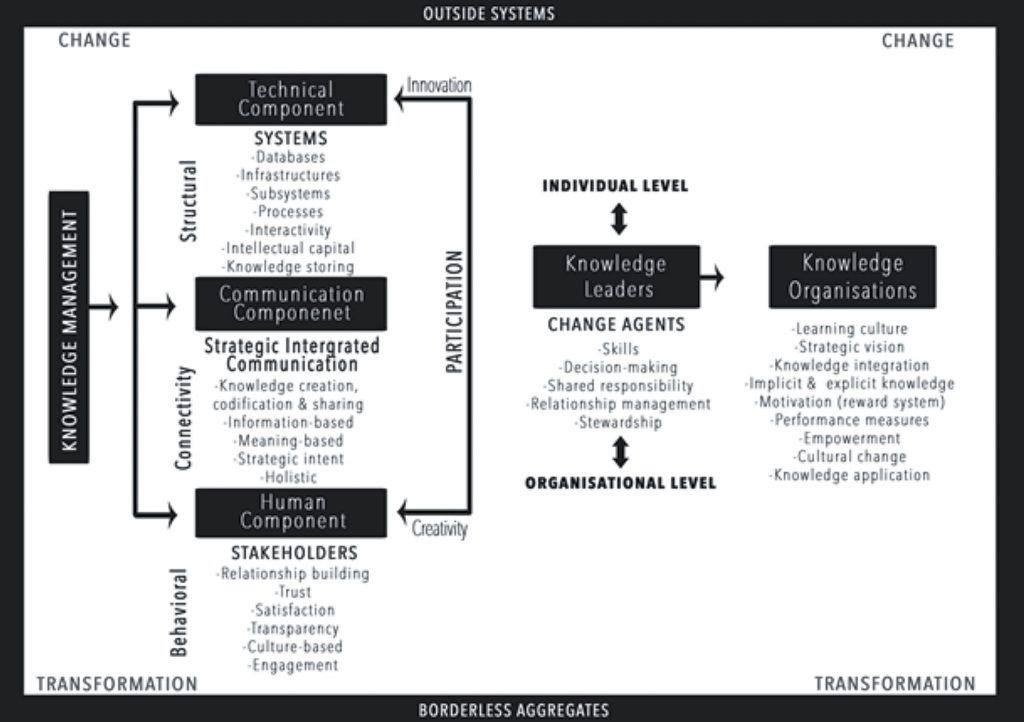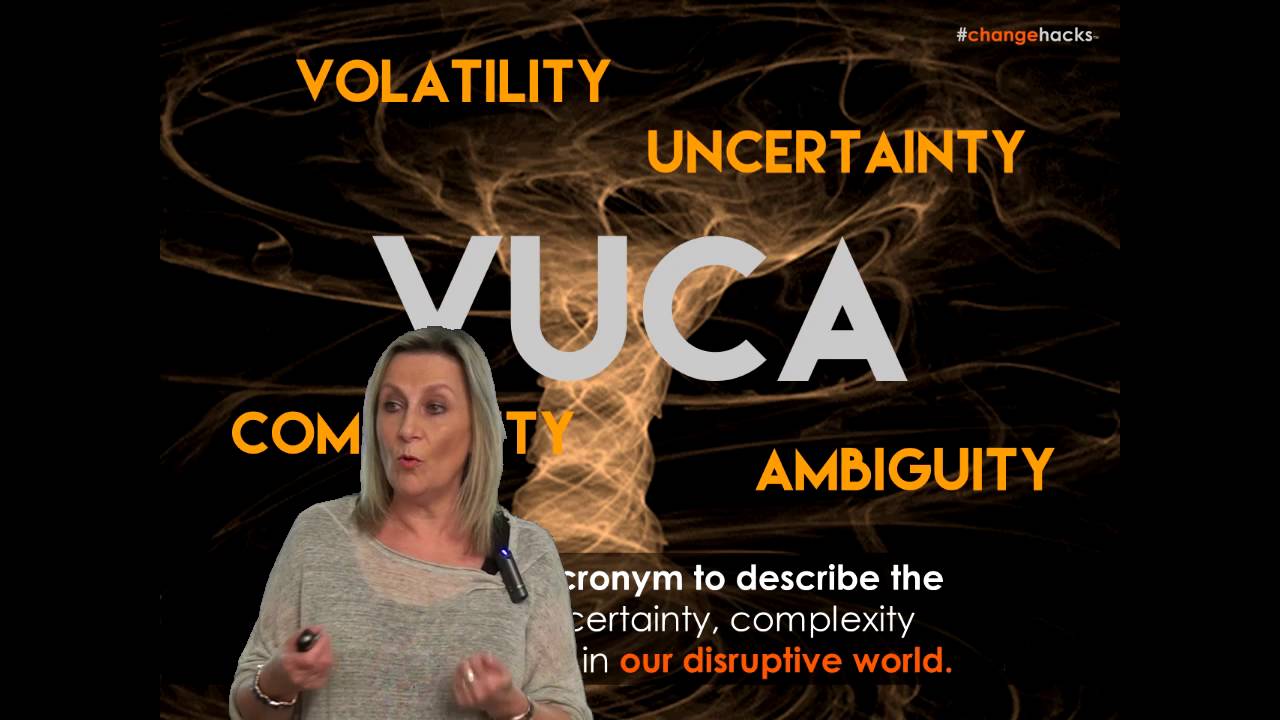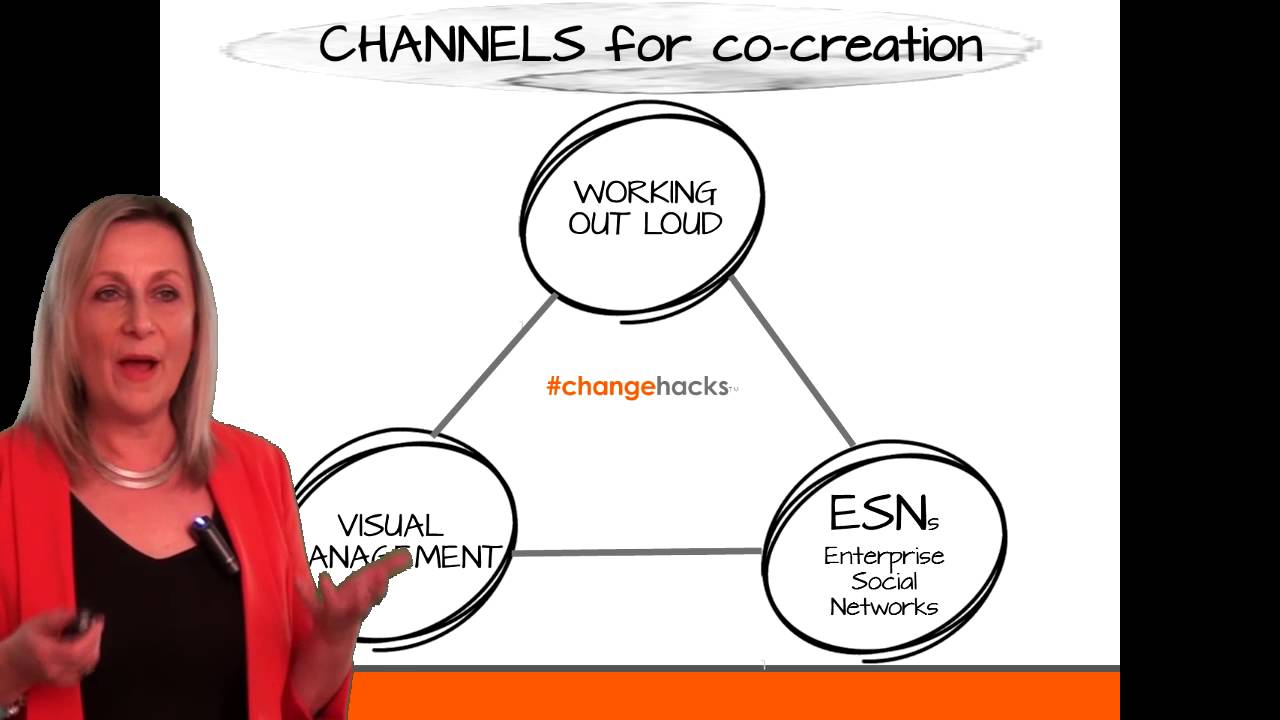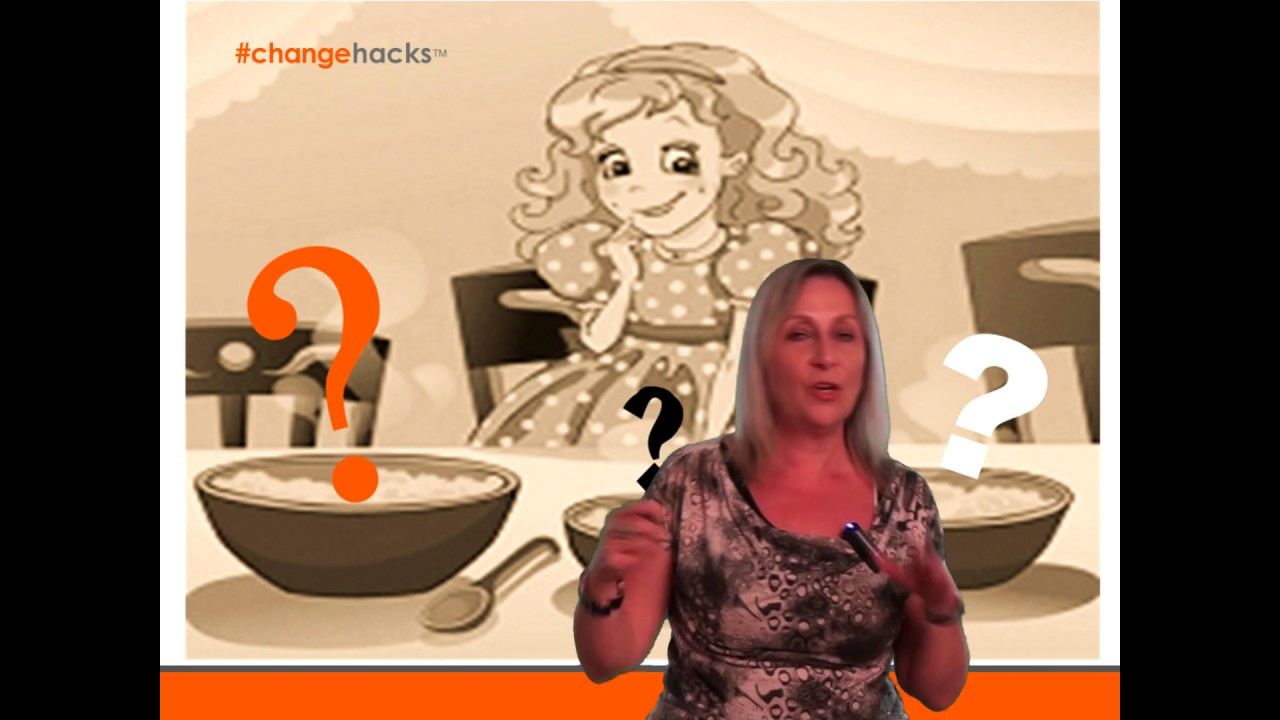
Knowledge leaders as change agents in knowledge organizations
In a recent article, I discussed new research that showed how collaboration among group members in a sustainable resource use context is not enough to bring about change: it is important to also have at least one confident and knowledgeable person in each group.
What about change agents in the context of knowledge organizations? Professor Rachel Barker from the Department of Communication Science at the University of South Africa provides a theoretical perspective on this in a recent conference paper1.
Despite recognition that knowledge management should be applied across organisations at all levels, there are a lack of studies investigating the relationship between the use of knowledge management and strategic integrated communication by knowledge leaders during organizational change and transformation to create knowledge organizations. Barker’s study seeks to address this gap by critically reviewing existing literature and proposing a theoretical framework to indicate the interrelatedness of these concepts.
Critical review of existing literature
Barker states that while traditional approaches to change and transformation have been effective for many decades, contemporary approaches now recognise the importance of complexity, the participatory nature of change management, and the role of the external environment. She argues that the focus has shifted “to dynamic environments moving away from planned change and organizational development to the management of change and transformation at a strategic organizational level.” In making this shift, there is recognition of “the need for strategic integrated communication with the emphasis on true and interactive participation and a holistic perspective where all systems and subsystems are integrated to create shared ownership and commitment.”
For the purposes of the paper, Barker defines strategic integrated communication as “The result of the management of common interests between the organisation and strategic stakeholder(s) over time in order to achieve mutually beneficial goals through a high degree of reciprocity and continuous two-way symmetrical communication.” Communication can be seen as a missing link in approaches to strategic management and leadership, and in this context knowledge leaders make business sense.
Barker contends that in the 2000s, the focus shifted from learning organisations to knowledge organisations, as shown in the following table. She sees knowledge management in the emerging knowledge organisations as having “three main components: technological (systems), communication (strategic integrated communication) and human (stakeholders).”
| Learning organizations |
|---|
|
| Knowledge organizations |
|
To create a knowledge culture in a dynamic organization, “it is argued that knowledge organizations should transform, develop and nurture systems and processes to ensure knowledge creation, storing, codification and sharing in a meaningful way to expand ‘individual knowledge’ (implicit) to ‘collective organizational knowledge’ (explicit).” Individual knowledge resides “within the human minds in terms of innovation, creativity, participation, skills and adaptability to change during transformation,” and “organizational knowledge is formed through unique patterns of interactions, technologies,communication and humans which create and shape a unique organizational culture.”
To support the emerging knowledge organizations, Barker proposes a new knowledge leadership perspective, as shown the following table.
| Traditional leaders (trait, servant, leader-member exchange, etc.) |
|---|
|
| Contemporary leaders (charismatic, transactional, transformation, visionary, etc.) |
|
| New knowledge leaders |
|
Theoretical framework
From her critical review of the existing literature, Barker has constructed the theoretical framework shown in Figure 1.

Characteristics of knowledge leaders
Barker identifies the characteristics in the following table as being important for knowledge leaders.
| Knowledge leaders should be able to: |
|---|
|
| Knowledge leaders should be: |
|
| Knowledge leaders should: |
|
Limitations and future research
Barker acknowledges the limitations of her research, with its conclusions being based on her knowledge and interpretations of existing literature. However, she argues that “the proposed theoretical framework is a good starting point to explain the knowledge-human-organization-relationship and could be a benchmark for more general studies.” Future research could refine and test the theoretical viewpoints in practice.
Reference:
- Barker, R. 2016. Knowledge Management as Change Agent to Ensure the Sustainability of Emerging Knowledge Organizations, The 17th European Conference on Knowledge Management, Northern Ireland, UK, 1-2 September 2016. ↩
Also published on Medium.






